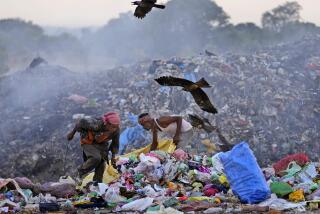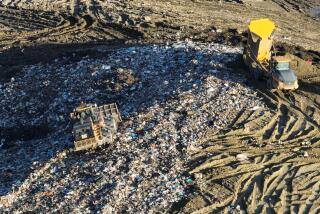Here’s one city turning India’s mountain of trash into cash
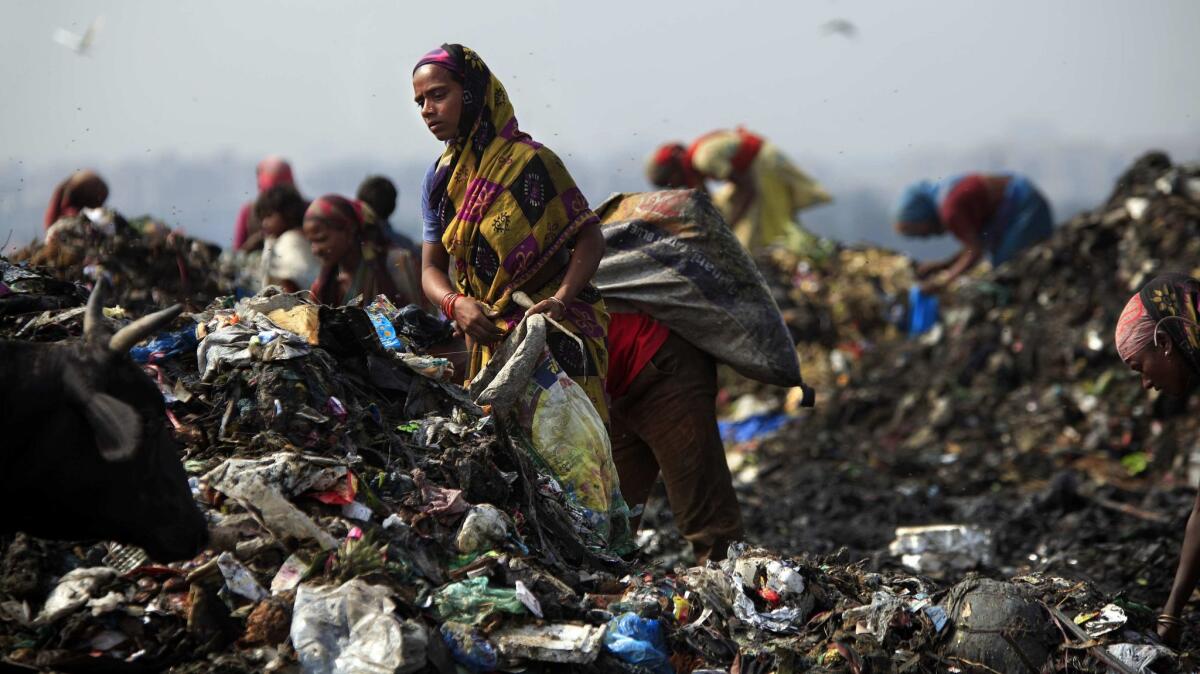
It’s 6:30 a.m. in the Indian city of Mysuru and the streets are full of the sound of whistles blowing as workers in olive green aprons and rubber gloves begin a door-to-door search. They have come to collect one of India’s biggest untapped resources: garbage.
The roughly 1 million citizens in the southern city, also known as Mysore, are in the vanguard of a campaign by Prime Minister Narendra Modi to clean up the country and recycle rubbish into compost and electricity. The task is gargantuan, but the approach in Mysuru — combining the availability of cheap labor with traditional methods and modern plants — shows how the country might overturn its image of ubiquitous trash.
India’s cities are among the largest garbage generators in the world, producing about 62 million tons of waste every year. Only about 82% of it is collected and only 28% of that is treated and processed. Most goes into landfills, open dump sites or is just left on the ground, often clogging rivers and drains.
The recent rapid expansion of India’s economy has moved its reputation for poor sanitation and dirty streets into a full-blown crisis. Rising wealth and consumption, and growing urbanization could cause the amount of urban solid waste to increase fivefold by 2051, according to a paper published in 2016 by researchers at New Delhi’s Jamia Millia Islamia university. Cities that can find an economic way to deal with the issue could reap a windfall in terms of investment and the benefits of a healthier community.
“We don’t want waste to be waste; we want to get wealth out of it,” says D.G. Nagaraj, health officer of the Mysuru City Corporation. “Zero landfill is our motto.”
As the morning whistle sounds in Mysuru, residents emerge from their homes with two bins — compostable and non-compostable — for the sanitary workers, who load up 400 push carts and 170 auto-tippers to go to nine recycling centers and a compost plant. At the centers, the trash is segregated, with reusable items such as bottles, metal, footwear and plastic cups sold to scrap dealers. The remainder is composted and sold to farmers.
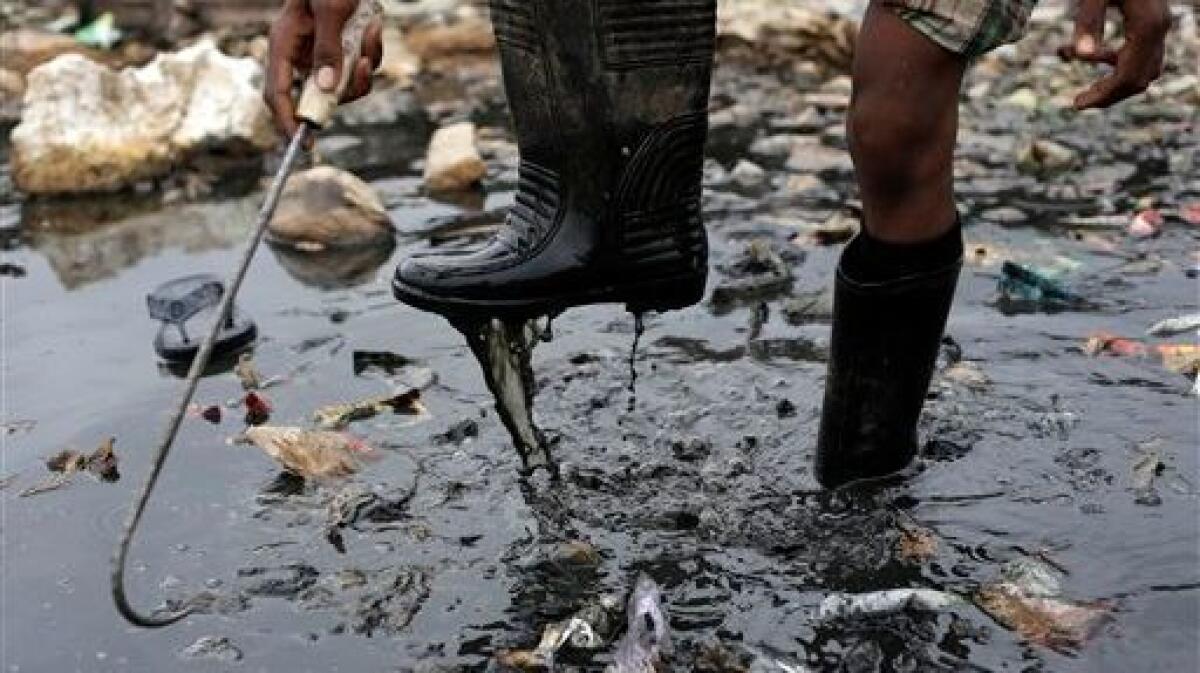
“Waste is not a problem if it is converted into money,” said D. Madegowda, 75, one of the volunteers who set up a recycling plant near a graveyard in Kumbar Koppalu, where scrap items like used rubber gaskets are offered for sale.
So far, the local government has manged to get the system to work by appealing to the public. The city, famed for its palaces of kings and maharajas, runs regular campaigns including morning radio jingles, WhatsApp messages, street plays and pamphlets. Government employees go door-to-door to create awareness among residents.
The recycling units set up mostly by local residents or non-government organizations cover their costs through the sale of scrap and compost. Of the 402 tons of waste Mysuru produces each day, close to a quarter is processed by these centers and about half is treated at the compost plant.
For the waste-to-fertilizer plant, Mysuru charges an annual fee plus takes 5% of the finished compost as payment. It also collects a solid-waste management levy from residents along with the property tax to help subsidize the program.
“Separation of waste is very important, but it’s only one part of the story,” said Swati Sambyal, a program manager at the Centre for Science and Environment in New Delhi. “Most of the Indian municipalities don’t have enough manpower, vehicles, infrastructure and revenue to support the segregation.”
Like most nascent recycling systems, Mysuru’s system depends partly on government support. The federal government last year began offering subsidies both to set up compost plants and to run them.
“Hopefully, we will now be able to break even,” said Chandra Shekhara, assistant manager of the Mysuru compost plant. The unit is run by Mumbai-based Infrastructure Leasing & Financial Services Ltd. Before the central government grants, only about 70% of the costs of the plant were covered by the sale of fertilizer.
The incentives have helped boost the nation’s production of compost from waste to 1.31 million tons in August from 0.15 million tons in March 2016. Investment in facilities to turn waste into compost or energy could reach $3 billion by 2027, according to estimates by industry body Assocham in a 2015 report.
Private companies were reluctant to enter the waste-processing business because of the high initial capital expenditure and the fact that profits depend on government support, said Amiya Kumar Sahu, founder and president of the Mumbai-based National Solid Waste Association of India. The companies need guaranteed supply of waste from the municipality and many also lack the expertise and technology.
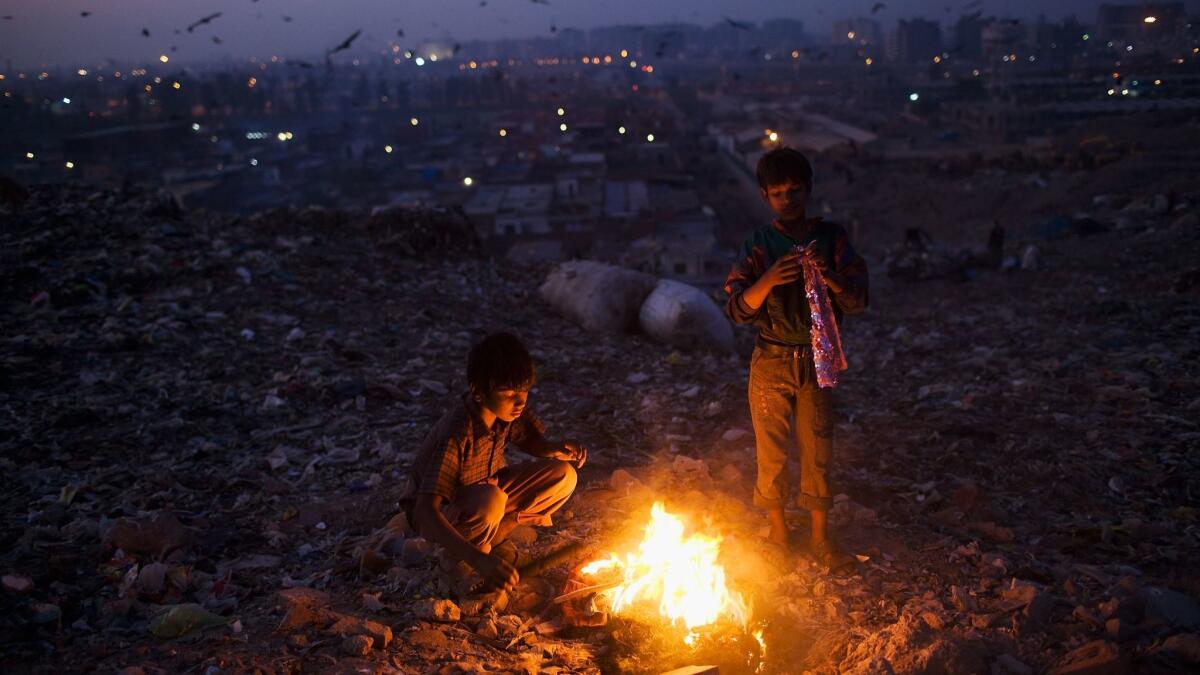
Modi’s government has also made it mandatory for the electricity board to buy power from the country’s seven existing waste-to-energy plants. Another 56 such generating plants are under construction, though Mysuru is too small to make such a plant viable for the city with the current infrastructure.
Public support in Mysuru has allowed the city to manage its garbage substantially. The city has a history of cleanliness. Its rulers not only built dazzling palaces but set up an urban planning body in 1903, introduced public street lighting in 1908 and built an underground drainage system by 1910.
But stronger measures will be needed to get more people to adhere to the recycling program. To take the move forward, the corporation plans to refuse to take unsegregated waste from residents, will ask citizens to have their own solid waste management units and is in the process of setting up more processing units, said Nagaraj.
“Progress is very slow, but there are sparks of hope everywhere,” said Almitra Patel, who led litigation in 1996 in the Supreme Court against open dumping that led to the nation’s first Municipal Solid Waste Management Rules in 2000.
She cited Suryapet, Warangal, Kolar and Vengurla as other cities where officials managed waste with innovative methods and public cooperation. “Wherever the commissioner, mayor and local representatives work together for the cause, there is great success,” she said.
Pradhan writes for Bloomberg.
More to Read
Inside the business of entertainment
The Wide Shot brings you news, analysis and insights on everything from streaming wars to production — and what it all means for the future.
You may occasionally receive promotional content from the Los Angeles Times.

